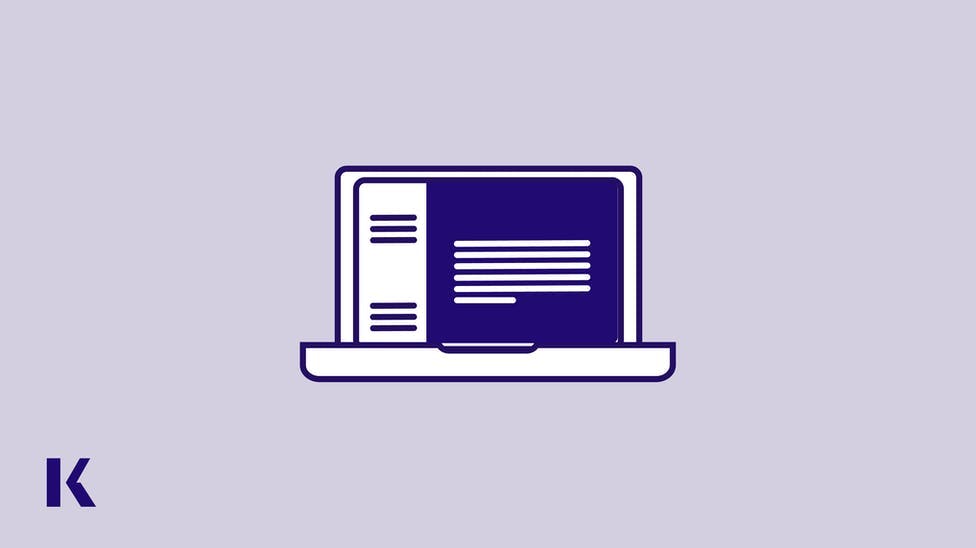Benefits of Adopting & Adapting With Artificial Intelligence (AI) in Nursing Education
by Dr. Rebecca L. Potter PhD, MSIDT, MSN/ED, RN, Director, Nursing Product Content & Curriculum | August 23, 2023

Artificial Intelligence (AI) has existed for quite some time now. In higher education, we all enjoy the immediacy of Grammarly and other writing efficiencies. At home, I personally have Alexa and Siri as AI assistants. I have used many plagiarism checkers and search features that use AI when teaching and learning over the years.
Can you name the assistants that you prefer to use?
Were you aware AI powers them?
AI has evolved from a concept to a transformative reality, revolutionizing our lives and industries. Two distinct paradigms within AI have emerged as driving forces. Open-loop and closed-loop AI each offer unique benefits when harnessed. In this article, we will delve into the advantages of both open and closed-loop AI and explore how their utilization can pave the way for unprecedented advancements in nursing education in innovative ways.
Open-Loop AI: Enabling Innovation through Collaboration and Efficiency Advancements
Open-loop AI, also known as open AI or ChatGPT, is characterized by open access that is transparent to all, collaborative in nature, and freely accessible. AI systems are developed using open-source frameworks, making their code and models accessible to the public.
Benefits for nursing educators include:1, 2
- Fostering interdisciplinary collaboration.
- Knowledge sharing.
- Propelling innovation.
- Accelerating processes.
- Inclusive applications.
- Interactional with prompting.
- Enabling & empowering personalization.
Closed-Loop AI: Precision and Adaptability when Applying in Complex Systems
Closed-loop AI, called closed AI, differs from open AI as it functions in a controlled environment. The system continually interacts with inputs and adapts behavior based on feedback. When closed-loop systems are built, they are specific and secure to their users.3
Benefits for nursing educators include:3
- Real-time adaptation.
- Complex application.
- Precise decision-making.
- Optimization of tasks & processes.
- Improved efficiency.
- Continuous transformation.
- Intentionally designed.
Kaplan Nursing: Leading the Way With AI
When adopting AI, knowing each paradigm's similarities and differences is imperative. Consider the intended use and expected outcome.3 Discover places where both paradigms can complement each other and your work. At Kaplan, we have a Center of Excellence devoted to AI and the many possible applications that harness the capabilities and drive our innovation. I am honored to be the inaugural entity on the Kaplan team utilizing a closed-loop AI assessment item generation tool, demonstrating Kaplan Nursing’s commitment to innovation and championing the use of AI at Kaplan. This tool has been built specifically to meet our requirements that address our customer's needs.
Experiences include:
- Expedited item idea generation.
- Efficiency across the item writing process.
- Quality verifications.
- Ease of adaptation.
- Trusted security features.
Applications for Using AI in Nursing Education
The best practice for including AI-assisted assessment items is to start slow and diversify the options for content developers. Continue to start with human prompting and conclude the process with human judgment in the form of peer review and user acceptance testing, a portion of quality assurance.4 Monitor the quality with customer feedback and statistical analysis. Continuous transformation is possible.
Other application considerations for using AI in nursing education: 1, 2
- Content creation may include new writings, photos, and videos.
- Virtual customer service support, mentors, coaches, and teaching assistants.
- Language translation and transcription.
- Research and data analytics.
- Virtual tutoring
- Automated grading and feedback.
- Adaptive and interactive learning.
- Syllabus and rubric creation.
Conclusion
The landscape of AI is diverse with opportunities for nursing educators. Each paradigm offers unique benefits that allow for individualization based on complexity, adaptability, and collaboration. Utilization of open-loop AI offers collective innovation, democratizing development, and interdisciplinary approaches.1, 2 Closed-loop AI application provides real-time adaptation and precision, specifically designed for complex systems.3 Our experience with closed-loop AI for assessment item idea generation has been positive. The impact AI will have on transforming teaching and learning is unrealized and unimagined as we navigate all the risks and possibilities. I am optimistic that we as nursing educators can harness both paradigms' strengths to propel the educational landscape forward by approaching AI with a healthy dose of cautious curiosity. As the AI landscape continues to evolve, we as educators must remain mindful of the legal and ethical considerations, privacy concerns and engage in responsible usage of technologies.1, 4 Our responsibility is to role model responsible use that improves society.
References
1Adiguzel, T., Kaya, M. H., & Cansu, F. K. (2023). Revolutionizing education with AI: Exploring the transformative potential of ChatGPT. Contemporary Educational Technology, 15(3), ep429. https://doi.org/10.30935/cedtech/13152
2Baidoo-Anu, D., & Ansah, L. O. (2023). Education in the era of generative artificial intelligence (AI): Understanding the potential benefits of ChatGPT in promoting teaching and learning. http://dx.doi.org/10.2139/ssrn.4337484
3Hamer, J. & Foster, C. (2023) Large language models and assessment development – Finetune generate, chatgpt, and beyond. https://www.finetunelearning.com/category/blog/
4Kitamura, F. C. (2023). ChatGPT is shaping the future of medical writing but still requires human judgment. Radiology, 307(2), e230171. https://doi.org/10.1148/radiol.230171

Dr. Rebecca Potter is an experienced learning scientist, nurse educator, and instructional designer. She has teaching, tutoring, writing, design, business, and consulting experience. In her role as Director of Nursing Content and Curriculum for Kaplan, Rebecca is responsible for instructional design, curriculum development, content management, multiple projects oversight, consulting, team education, nursing student success, and faculty support. She leads a team of nursing education experts as content managers, content developers, and non-nursing contributors as content specialists. Rebecca’s cross-collaborative efforts include project-based content development, platform support, learning experience, learning analytics, customer and team member support, research, and outreach. Kaplan’s most recent accomplishment with her leadership was a multi-year transformation of the curriculum for the Next Generation NCLEX® exam. She is currently leading Kaplan’s adoption of closed-loop generative AI for assessment item idea generation.
